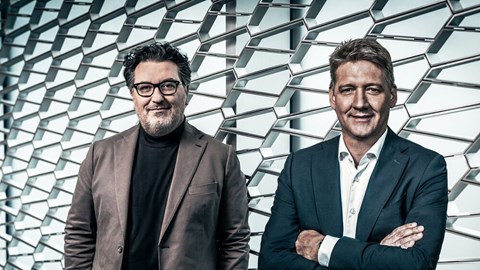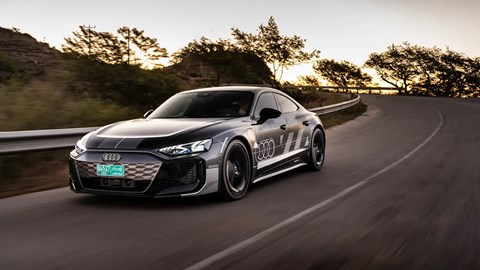► What’s next for Audi
► What’s coming next
► And what isn’t
Just what is Audi for? Poor financial figures look like a symptom of an identity crisis at the car maker once renowned for low-key excellence. Sales are down. It’s invested heavily in getting new all-electric cars to market at a time when interest in EVs is waning. It’s planning to lose engineers as a way to cut costs – but that risks slowing the development of much-needed new cars.
Any company can survive downturns in sales, market share and profitability – and Audi is far from alone among European car makers in finding the going pretty choppy at the moment. But what’s more worrying is the suspicion that its commitment to engineering excellence may not be what it once was, and the perception that Audi is no longer clear what it stands for, within the premium car market and within the VW Group.

There are reasons to be optimistic. The man in charge at Audi, former Porsche executive Gernot Döllner, who took over from Markus Duesmann in September 2023, has a good working relationship with VW Group boss Oliver Blume. Döllner has, we understand, given a clear brief to Massimo Frascella – who took over from Marc Lichte as chief creative officer in June 2024 – to avoid vague future-gazing and instead create a down-to-earth show car that points to a production vehicle.
Sales are down in Europe, China and the US, and the thousands of jobs at risk include many R&D specialists – the people who should be working on the engineering solutions that will restore some of the shine to Audi’s tarnished reputation for quality.
Looking to the near future, Döllner has split development work between seven teams, each focused on a group of related products. For instance, one group’s efforts are centred on the MEB and MQB platforms, which between them should provide the next generation of electric and combustion replacements for the A1, Q2, A3 and other modestly sized products. At the other extreme, a different group is tasked with creating the future electric A8.

Insiders expect a new electric Q2 crossover in 2026 and the following year an all-electric A3 replacement (to be badged A2, under Audi’s new naming convention, where odd numbers have engines and evens are all electric). The project referred to internally as C-Sport is what’s left of Audi’s ambitions for a sports car, a sister of the battery-powered Cayman and Boxster. Stuttgart’s future clean-air two-seaters have apparently come in way over budget, and the target retail price is now a stiff €130,000.
As a result, Audi has not yet confirmed its C-Sport spinoff. Other projected sports cars, including the R8 replacement, have been mothballed, and the next-generation e-Tron GT – to be twinned with 2028’s second-generation SSP-based Porsche Taycan – is currently on hold.
Another interesting potential newcomer is project HardQore – the capital Q stands for a new quattro all-wheel-drive system with up to three e-motors, stacked suspension, four-wheel steering and off-road-biased torque vectoring. Co-developed with Magna, the 800-volt HardQore shares its ladder-frame chassis, electronic architecture and key drivetrain elements with the SUV and pick-up from Scout, the heritage workhorse brand revived by VW; a four-cylinder range-extender petrol engine driving the live rear axle will also be on offer.

The South Carolina plant, which has a projected annual capacity of 200,000 units, could in principle also accommodate the still nameless Audi derivative due in 2027 or 2028. It’s believed to be a three-row, high-end metal-top priced one or two notches below the Mercedes G-Class and imminent electric Range Rover. But there’s a glitch: like the C-Sport, the HardQore project has not yet had the necessary investment assigned to it.
One of Lichte’s most compelling future Audis, designed before his departure, is the RS Allroad, with big wheelarches and a rugged overall look. It will be available as a hybrid, petrol or diesel engines but not EV. That sounds very appealing – and very do-able.
In common with all VW brands except perhaps Bentley and Lamborghini, Audi needs to tighten its belt and concentrate on profitable volume-sellers like 2028’s A4 e-Tron, which was Lichte’s final effort before Frascella arrived from JLR. Straight-bat cars like that will be prioritised over emotional niche models – no more coupes, no more convertibles or roadsters, no confirmed new sports car. Also due for the chop are the barely profitable A1, the stillborn Q1 and the non-e-Tron Q8.
It will be a shame to see the back of sportier and wilder Audis, if that’s the way the belt-tightening strategy manifests itself. But maybe that’s exactly what Audi needs right now: to get back to the sort of cars that made its reputation in the first place.